
About two miles away from Tirunavaya is a nondescript sign on the side of the highway announcing that the Chandanakkavu temple is close by. It is a quiet wooded grove with a variety of large trees including sandalwood; easy to drive across as just another beautiful countryside vista. But quietly nestled here, not known to many, are the legendary Chandanakkavu temple and the ruins of what once was the renowned Melputhur Nam. Vasudevan Namboodiri in his poetic work Bhramarasandesham describes Chandanakkavu as "the place resonant with the voices of Matrudatta's disciples engaged in learning the shastras." Matrudattan Namboodiri was an authority on the Veda, Mimamsa, Tantra and other shastras. He married a girl from the Payyur Illam which was the ancestral home of scholars well-versed in Mimamsa philosophy. Melputhur Narayana Bhattathiri was their second son.
More than four hundred years ago the Chandanakkavu temple was a great centre of learning. There are three main temples here; one to Bhagavati on the northern side, to Vishnu on the southern side and to Ganapati in the centre. Within each of these there are many more deities enshrined, and in all there are eighteen of them. The Ganapati temple was the most prominent and it was here that Vedadhyayana took place. Children from nearby Illams would congregate at the temple for their lessons under Madhavan Bhattathiri who taught Vedic chanting. There were also other gurus who taught Sanskrit and the Vedas. Matrudattan Namboodiri too taught at the Chandanakkavu temple and had disciples learning Vedangas such as Shiksha, Chhandas, Vyakarana and Nirukta, Mimamsa, Vedanta and various Sutras under him.
Diese Geschichte stammt aus der April 2022-Ausgabe von The Vedanta Kesari.
Starten Sie Ihre 7-tägige kostenlose Testversion von Magzter GOLD, um auf Tausende kuratierte Premium-Storys sowie über 8.000 Zeitschriften und Zeitungen zuzugreifen.
Bereits Abonnent ? Anmelden
Diese Geschichte stammt aus der April 2022-Ausgabe von The Vedanta Kesari.
Starten Sie Ihre 7-tägige kostenlose Testversion von Magzter GOLD, um auf Tausende kuratierte Premium-Storys sowie über 8.000 Zeitschriften und Zeitungen zuzugreifen.
Bereits Abonnent? Anmelden
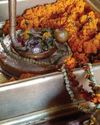
Panchakroshi Parikrama of Varanasi
At the snow-capped Kailas, the Divine Lord Shiva was seated with Mother Parvati.
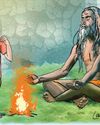
Gadai and the Monks
A fictional narrative based on incidents from the childhood of Sri Ramakrishna.
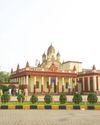
Chintayo momo maanosho Hori...
Sri Ramakrishna loved songs. There probably was no normal day when he did not sing some songs.
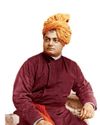
The Vedanta Vaccine
The world is still struggling under the impact of the pandemic due to Covid-19 for the last three years.
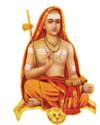
Chandrakirti's Chariot: Self in Madhyamaka Buddhism and Advaita Vedanta
The goal in Advaita Vedanta is the cessation of suffering and the attainment of true fulfillment. Suffering, according to this school, is due to ignorance of the true nature of the self and consequent erroneous identification with the body-mind.
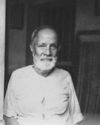
Reminiscences of Sargachhi
Question: यद्यदाचरतत श्रेष्ठसतत्तदरेवरेतरो जनिः। ‘Whatever a superior person does, others do the same thing!’ (Gita 3:21) – What does this statement mean?
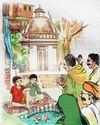
THE AUTUMN FESTIVAL
A fictional narrative based on incidents from the childhood of Sri Ramakrishna.
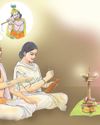
Bards of Guruvayur: Vilwamangalam II
Saints of India
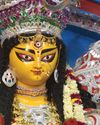
In the Universal Mother’s Divine Playground
Swami Vivekananda never taught the worship of Mother Kali. In a letter to Mary Hale he writes, “Kali worship is not a necessary step in any religion.
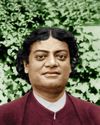
Swami Vivekananda: A Sportsman Par Excellence
In various books and articles, Swami Vivekananda has been called a spiritual leader, a prophet, a patriot, a social reformer, a philosopher, a yogi, a writer, an orator, an educationist, a musician, and so on.